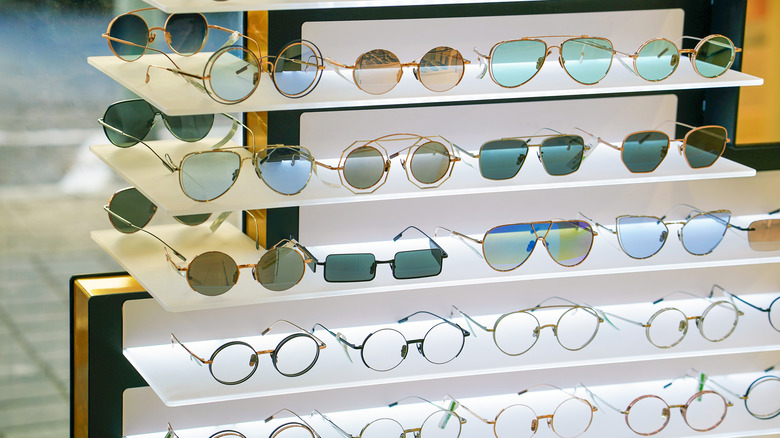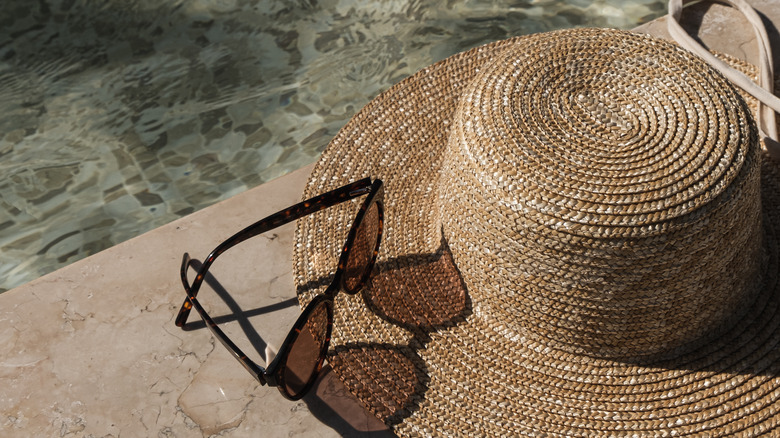The Best Ways To Protect Your Eyes From The Sun
Popping on a pair of sunglasses may be a stylish way to see better during the summer, but your lenses may not offer the amount of protection that your eyes really need. Indeed, according to the Skin Cancer Foundation, UV radiation can damage your eyes the same way that it can burn your skin. The problem is so prevalent that eyelid skin cancers make up between 5 and 10% of all skin cancer cases in the United States. In other words, it's time to take a few extra steps this summer to make sure your whole body is protected.
Luckily, once you cultivate a few new habits, protecting your eyes can be pretty easy. Obviously, finding a good pair of sunglasses that offer full UVA and UVB reflection is the first step. The organization recommends that the glasses you choose block between 99 and 100% of harmful rays. If you're not sure how much protection they provide, you can look for the Skin Cancer Foundation stamp of approval that ensures full-scale coverage. Plus, your sunglasses should have a permanent spot on your face even when the sun rests behind the clouds. As you may know from your sunscreen education, harmful rays can come through at any time of day — even when the sun isn't shining. Keep your glasses on hand throughout the year, particularly between May and September.
Light also reflects off of water, snow and sand with nearly 80% of the damaging rays having enough strength to reach your skin, the outlet notes. If you're close to these surfaces, take extra precautions.
Choose sunglasses that have anti-reflective properties
Once you've found your high-powered glasses that reflect nearly all of the damaging rays from the sun, you can add an extra layer of protection by finding a pair that has an anti-reflective coating on the back of the lenses. This combats a common issue that may damage your eyes. "Up to 50 percent of UV rays that reach the eyes come from reflection off the back surface of the lens," Dr. Amanda Rights, an optometrist, explained to Healthline.
Essentially, having this reflective coating can make a big difference in your eye health. Plus, bigger may be better when it comes to sunglasses. "Wraparound-style glasses or surf-style glasses with larger temples or 'arms' block more than thin-framed glasses and help to protect you from the side," Dr. Benjamin Bert, an ophthalmologist, told the outlet. "It is important to remember when you are out on the water, or other reflective surfaces, that you are getting exposed to the sun's rays from above and those reflected from below. Having glasses that fit appropriately to protect you from multiple angles is important."
But beyond your sunglasses, wide-brimmed hats can do the job as well. The Skin Cancer Foundation notes that your hat should have at least a three-inch brim without any holes to fully protect your eyes and the surrounding skin. As you ascend in altitude, make sure to take better cover — the higher you go, the more intense the rays.
Armed with a good pair of sunglasses, a hat and awareness of the sun's patterns, you'll keep your eyes feeling good and looking great.

